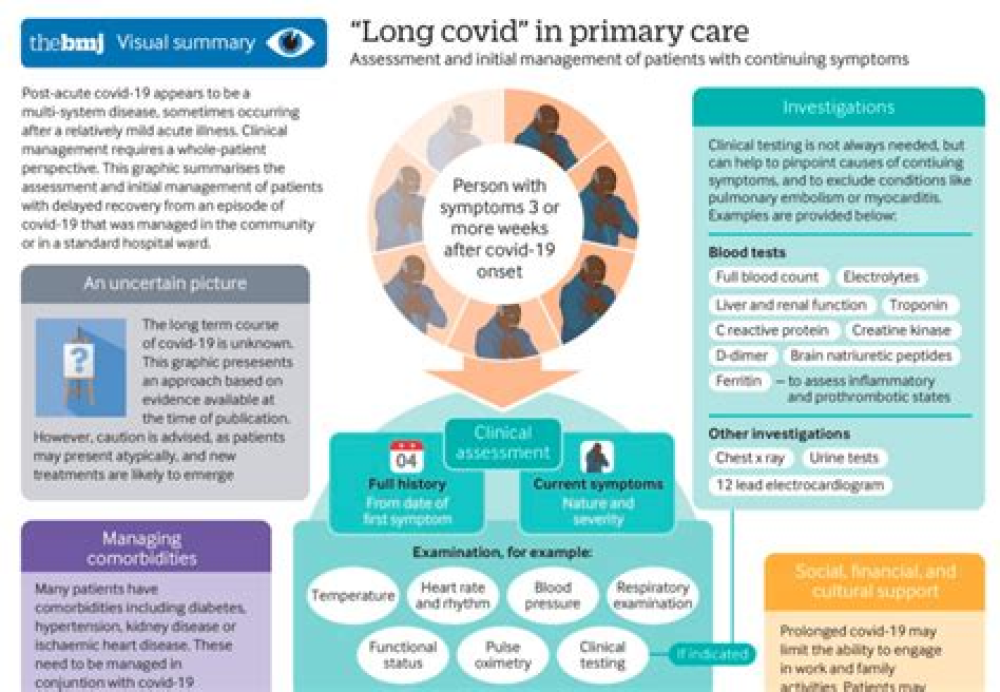BMJ 2020; 370 doi: https://doi.org/10.1136/bmj.m3026 (Published 11 August 2020)Cite this as: BMJ 2020;370:m3026
Authors: Trisha Greenhalgh, professor of primary care health sciences1, Matthew Knight, consultant respiratory physician2, Christine A’Court, general practitioner1, Maria Buxton, consultant respiratory physiotherapist3, Laiba Husain, research assistant1
What you need to know
- Management of covid-19 after the first three weeks is currently based on limited evidence
- Approximately 10% of people experience prolonged illness after covid-19
- Many such patients recover spontaneously (if slowly) with holistic support, rest, symptomatic treatment, and gradual increase in activity
- Home pulse oximetry can be helpful in monitoring breathlessness
- Indications for specialist assessment include clinical concern along with respiratory, cardiac, or neurological symptoms that are new, persistent, or progressive
Post-acute covid-19 (“long covid”) seems to be a multisystem disease, sometimes occurring after a relatively mild acute illness.1 Clinical management requires a whole-patient perspective.2 This article, intended for primary care clinicians, relates to the patient who has a delayed recovery from an episode of covid-19 that was managed in the community or in a standard hospital ward. Broadly, such patients can be divided into those who may have serious sequelae (such as thromboembolic complications) and those with a non-specific clinical picture, often dominated by fatigue and breathlessness. The specialist rehabilitation needs of a third group, covid-19 patients whose acute illness required intensive care, have been covered elsewhere.3
Defining post-acute covid-19
In the absence of agreed definitions, for the purposes of this article we define post-acute covid-19 as extending beyond three weeks from the onset of first symptoms and chronic covid-19 as extending beyond 12 weeks. Since many people were not tested, and false negative tests are common,4 we suggest that a positive test for covid-19 is not a prerequisite for diagnosis.
How common is it?
Around 10% of patients who have tested positive for SARS-CoV-2 virus remain unwell beyond three weeks, and a smaller proportion for months (see box 1).7 This is based on the UK COVID Symptom Study, in which people enter their ongoing symptoms on a smartphone app. This percentage is lower than that cited in many published observational studies,89 whose denominator populations were those admitted to hospital or attending specialist clinics. A recent US study found that only 65% of people had returned to their previous level of health 14-21 days after a positive test.10
For More Information: https://www.bmj.com/content/370/bmj.m3026
